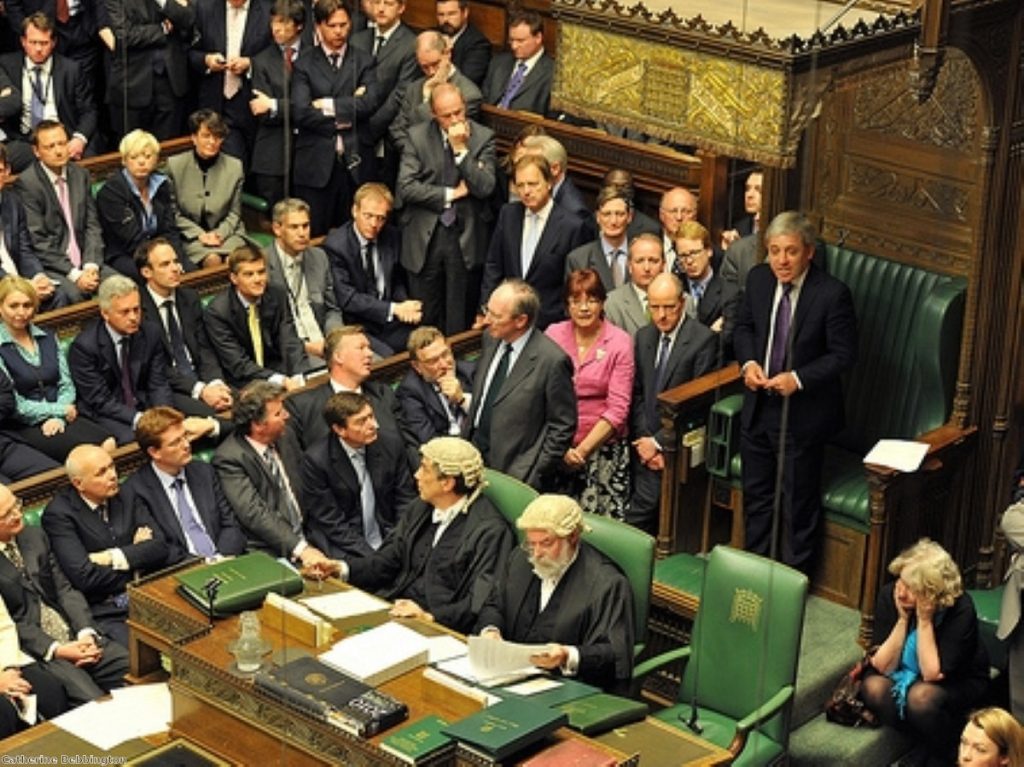PMQs sketch: Far too well-behaved
This week’s prime minister’s questions was well-behaved, orderly and utterly dull. There is a grave danger MPs are finally getting the message.
A year on from the expenses scandal its fallout continues to haunt the Palace of Westminster. Worst of all, a Speaker has been elected who constantly tells MPs their barracking schoolboy behaviour is “not what the public want”. Last week John Bercow even told the prime minister off for getting off-topic. He is now openly talking about shaking up PMQs.
If the terrible day comes when the public is not given the spectacle of the PMQs bearpit, which tests leaders and unashamedly champions partisan rivalry, we will face many more half-hour sessions like this one.


Cameron answered a question on Northern Ireland with a short statement, outlining the current situation in the province and using up valuable time in which he could have been heckled on less serious matters.
In answer to a polite and scrubbed-up question from Western Isles MP Angus MacNeil on fuel costs came an impeccably Sir Humphrey-esque answer. “Discussions will be had and when we have something to say we’ll come back and talk about it,” Cameron said breezily. It was efficient, effective and without any newsworthiness whatsoever.
Worst of all, the PM fielded repeated questions from well-meaning government backbenchers parroting excitedly about examples within their constituency of the ‘big society’, which only a select few seem to know about or understand.
Perhaps because of last week’s admonishment from the Speaker, Cameron was using this and every other opportunity which came along to adopt a holier-than-thou attitude.
“Honourable members opposite who sigh” every time such marvellous community projects are mentioned should realise that “we have to change the way we do politics in this country”, the prime minister frowned.
His attitude towards the opposition frontbench was one of censure rather than pity. We have a new problem in British politics, he revealed. “Deficit deniers! And I’m looking at a whole row of them!”
The shadow Cabinet responded by pulling a range and variety of faces more suitable to a ‘The Usual Suspects’-style film poster – from red-tied Jack Straw’s stuffy frown to slithery-topped Yvette Cooper’s sneer. They looked exactly like the sort of people you would expect to deny the deficit. Harriet Harman scowled quietly to herself.
She had been given five questions with which to pester Cameron, who has privately praised her for doing very well. What more damning indictment could there be from her opponent? If he was really riled he might feel the need to criticise her, but after today’s performance that seems even less likely. She limped along, moaning that he was not answering her question about NHS commitments. But Cameron had the last word. “We are not backing the bureaucracy,” he responded, to opportunistic shrieks from Labour MPs. “We are scrapping the bureaucracy.” The coalition roared its approval.
What followed was a thoroughly exemplary series of questions from backbenchers. This was the first PMQs for a long, long time in which no MPs were interrupted for waffling. Instead we saw a succession of topical, relevant queries challenging or supporting the government’s business.
It was the most awful form of sterility. Where was the barracking, the railing against the government, the spite, the acrimony? This is the real deficit which needs addressing in the Commons. The only person who won’t mind in the slightest is the prime minister.












